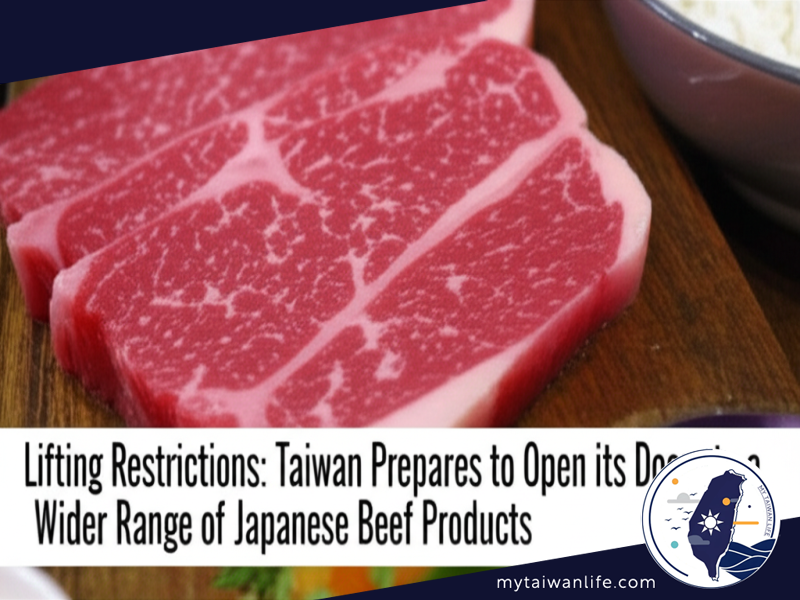Taiwan Set to Embrace All Japanese Beef: A New Era for Imports?
Lifting Restrictions: Taiwan Prepares to Open its Doors to a Wider Range of Japanese Beef Products.

Taipei, May 5 - Taiwan is poised to broaden its import regulations, potentially allowing for the importation of all Japanese beef products, regardless of the cattle's age. This announcement was made by Taiwan Food and Drug Administration (TFDA) Director-General Chiang Chih-kang on Monday, signaling a significant shift in food import policies.
The TFDA initiated the proposal on March 4, establishing a 60-day period to gather public feedback, which concluded on Monday. However, Chiang emphasized that further discussions are necessary before finalizing a specific timeline for lifting existing restrictions on Japanese beef imports.
Currently, Taiwan only permits the import of Japanese beef products derived from cattle under 30 months old. These strict regulations were put in place in 2003 during the global outbreak of bovine spongiform encephalopathy (BSE), commonly known as mad cow disease.
In 2017, import regulations were gradually loosened for beef from the United States, Canada, and Japan. Following this, Taiwan permitted the import of all-age beef from the U.S. in 2021 and Canada in 2023.
Japan is now likely to join the list of countries with unrestricted access to the Taiwanese market.
Director-General Chiang noted that Japan has not reported any cases of mad cow disease for more than 15 years. Furthermore, the World Organization for Animal Health (WOAH) has classified Japanese beef as being as safe as that of the U.S. and Canada.
CNA photo May 5, 2025
More than 30 countries, including the U.S., Canada, Australia, New Zealand, and the European Union, have already permitted the import of Japanese beef products of all ages. Chiang stated that Taiwan's move would simply align the country with international standards.
Chiang further addressed safety concerns, indicating that conservative estimates of higher-risk, boned beef products suggest that only one in 150 million consumers may be at risk of exposure to Creutzfeldt-Jakob disease (CJD), which is linked to mad cow disease.
Regarding the timeline for the implementation of the new regulations, Chiang said that discussions with experts and representatives from various fields are planned to ensure a gradual and safe rollout.
Other Versions
Taiwán acepta toda la carne de vacuno japonesa: ¿una nueva era para las importaciones?
Taïwan s'apprête à accepter tout le bœuf japonais : une nouvelle ère pour les importations ?
Taiwan Siap Menerima Semua Daging Sapi Jepang: Era Baru untuk Impor?
Taiwan si appresta ad accogliere tutta la carne di manzo giapponese: una nuova era per le importazioni?
台湾は日本産牛肉を全面的に受け入れる:輸入の新時代?
대만, 모든 일본산 소고기 수입 허용: 수입의 새로운 시대?
Handa na ang Taiwan na Tanggapin ang Lahat ng Japanese Beef: Isang Bagong Panahon para sa mga Import?
Тайвань намерен принять всю японскую говядину: новая эра для импорта?
ไต้หวันเตรียมรับเนื้อวัวญี่ปุ่นทั้งหมด: ยุคใหม่ของการนำเข้า?
Đài Loan Chuẩn Bị Chào Đón Toàn Bộ Thịt Bò Nhật Bản: Một Kỷ Nguyên Mới cho Nhập Khẩu?

